Burning Spear's albums
 Studio One Presents Burning Spear (1973): Studio One Presents Burning Spear (1973):
Though he is better known for his releases on Island during the mid-'70s, Winston Rodney (aka Burning Spear) wrote an equally important chapter in reggae music during the first half of that decade. The singer began his professional career on a series of recordings for the legendary Studio One label during the years 1969-1974. Aided by singer/producer Larry Marshall and singer Rupert Willington, the resulting music was some of the most innovative of the style eventually categorized as roots reggae. Known alternately as Presenting or simply Burning Spear, this debut set collects 12 of the sides he cut during the period. A further 12 compositions were subsequently gathered as Rockin' Time, and the two albums together represent the bulk of Spear's recordings during those years. Ideologically, Spear's music was comparable to that of the Abyssinians, who also got their start at Studio One, recording their groundbreaking "Happy Land" (aka "Satta Massagana") in 1968. Both groups were among the first to deal openly with Rastafarian themes on record. Though Spear's early releases failed to achieve the success of some of his more fortunate labelmates, they form a significant part of the singer's body of work and, therefore, reggae music in general. Perhaps most stunning is "Door Peep Shall Not Enter," Rodney's 1969 debut 45, which begins with the singer's spoken praise to Jah, and is supported by a suitably rugged rhythm. Equally strong are "Pick Up the Pieces," "Journey," and "He Prayed," compositions Spear would return to during a period of self-production in the late '70s. Unfortunately, the sound quality on the Studio One issue available on CD hardly does justice to this majestic music. With no other alternative, however, Presenting is still unreservedly recommended.
Rockin' Time (1974):
NO INFO!:(
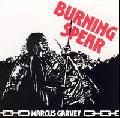 Marcus Garvey (1975): Marcus Garvey (1975):
NO INFO!:(
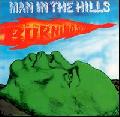 Man in the Hills(1976): Man in the Hills(1976):
Winston Rodney embraces the pastoral much the same way he renounces slavery and oppression. Too bad this album still falls short of the remarkable Marcus Garvey. Producer Jack Ruby can't be blamed; the musical backing provided by the Black Disciples will thrill fans of the roots reggae sound. And the man in question's hypnotic chants are no less hypnotic or inspired. But idyllic recollections of anybody's upbringing are destined to lack a certain prophetic weight. Radicalism and protest are what many listeners have come to expect from Burning Spear. And it's only these selfish expectations that miss the mark.
Garvey's Ghost(1976):
NO INFO!:(
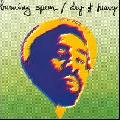 Dry&Heavy(1977): Dry&Heavy(1977):
The second half of the album's title pretty much sums it up. With the low end ably handled by Sly & Robbie, as well as Aston Barrett from Bob Marley's Wailers, Winston Rodney is free to follow his muses where they lead him, which is back to politics and spiritual matters. If not as perfect as Marcus Garvey, this set allows us a more detailed view of Burning Spear, an artist fully engaged in the world around him. An essential album from a genuine visionary. The second half of the album's title pretty much sums it up. With the low end ably handled by Sly & Robbie, as well as Aston Barrett from Bob Marley's Wailers, Winston Rodney is free to follow his muses where they lead him, which is back to politics and spiritual matters. If not as perfect as Marcus Garvey, this set allows us a more detailed view of Burning Spear, an artist fully engaged in the world around him. An essential album from a genuine visionary.
Marcus' Children(1978):
NO INFO!:(
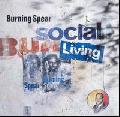 Social Living(1980): Social Living(1980):
Burning Spear's second album was originally released in the U.K. by Island in 1980 and has always been difficult to find in the U.S. Blood & Fire's reissue makes it possible for average American reggae fans to hear what we've been missing, and it turns out that we've been missing quite a lot. Social Living picks up right where Marcus Garvey left off -- more slow, dark songs about slavery, repatriation and, of course, Garvey himself (four of the nine songs have his name in their titles). There are still no real tunes to speak of, just immensely dense grooves that thud and rumble along slowly and relentlessly to the accompaniment of distant horns and rattling Nyabinghi percussion. If this album edges out the first in any way, it's in the mix: Island toned down Marcus Garvey a bit to appeal to British audiences, but the Blood & Fire version of Social Living absolutely throbs with bass and echoes like drums heard across vast distances. In this context, when Winston Rodney sings that "Jah no dead" it's impossible not to believe him; when he instructs you in the specifics of "Social Living," you find yourself submitting to his instruction. It's that kind of album.
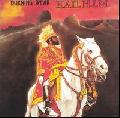 Hail H.I.M.(1980): Hail H.I.M.(1980):
Across five seminal albums, Burning Spear would do more than just define roots; he would leave a fiery legacy that no other artist has equalled. Kicking off with the stunning Marcus Garvey in 1975 and encompassing the equally exceptional string of Man in the Hills, Dry & Heavy, Social Living, and Hail H.I.M., the final album in this series of masterpieces, Spear had undergone a continuous evolution. Over this five year period, Spear had truncated from a trio to Winston Rodney alone, grown to include the accompanying Black Disciples aggregate of elite sessionmen, then pared down to a smaller grouping, and had seen Rodney move into self-production. Along the way, Spear had developed a denser sound and mixed a variety of other genres into the deep roots atmosphere. By 1980, when work began on Hail H.I.M., Rodney had severed his ties to Island Records and most of the Black Disciples as well. However, Aston Barrett remained by his side as co-producer, bassist, and percussionist. So did saxophonists Bobby Ellis and Herman Marquis, now joined by Egbert Evans and keyboardist Earl Lindo, with fellow pianoman Tyrone Downie now also coming on board. There was a switch in sound as well; Social Living had been an almost anthemic album, while Hail H.I.M., in contrast, was transcendental. Much of the record has an almost proggy feel, as guitarist Junior Marvin jams across the heavy rhythms, the brass slices in jazzy passages, and lurking underneath, the tribal-flavored percussion and Rodney's congas. Yet there are still hints of the past found within, the breezier air of "African Teacher," and the '60s flavorings of "Columbus." "Road Foggy," which began life in those climes as the Studio One cut "Foggy Road," now re-emerges as a groove-heavy monster, with only the brass an echo of its previous incarnation. But the greatest change is found within the lyrics. Many of the songs are stripped down to minimalistic core themes, and in the case of "Follow Marcus Garvey" are little more than the reiterated command of the title itself. But these repeated refrains pack their own potent power via the concepts themselves and Rodney's phenomenal delivery, which imbues the words with such emphasis, they transform into mantras, embedded with a myriad of deeper meanings. When Rodney does expound at somewhat greater length -- as on "Road Foggy," "African Postman," and "Columbus" -- the impact is thus all the greater. The album is loaded with resonant themes: "African Postman"'s telegram calling for repatriation, the militant unity of "Cry Blood Africans," the vengeance of "Jah a Guh Raid," the deep devotion of the title track and "Jah See and Know," the desire to educate and learn found in "Columbus" and "African Teacher," respectively, and of course, an expostulation on the great Marcus Garvey. It's a stellar record, less a culmination of all that came before then a conclusion to a journey that had begun years before.
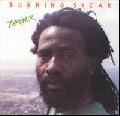 Farover(1982): Farover(1982):
After the rather disappointing Farover, this mellow album laid down a firm foundation for the future, ensuring that while Burning Spear's fire no longer burned as fiery as before, a bright glow would still last down through the years. The Fittest of the Fittest's title track encapsulates both the sound and vision of what was to come. The Burning Band's rhythm section lays down a succulently meaty groove, while the rest of the musicians weave in and out, layering on riffs and flourishes to create a rich tapestry of sound. Overhead, Winston Rodney chants along, a long-distance roadrunner eating up the miles and passing cultural touchstones along the way. "Repatriation" boasts an equally sublime groove, with the band almost melting into it. No longer the immediate imperative, repatriation now seems more a long-term goal, a significant sea change, moving Rodney away from his earlier militancy and toward a more visionary stance. It's a transformation that the unity-themed "Vision" further supports, and "For You" confirms. The latter is a song for the ladies, which, even after "She's Mine" broke Spear's cultural mold on Farover, comes as a surprise. Yet "Bad to Worse" makes clear that Rodney hasn't become a full-blown optimist just yet. Past injustices still rankle, or at least bubble, as they do on "2000 Years," which gurgles up from the roots, then seeps through the dancehalls. If that bubbles, "In Africa" boings, as the chanter now reinvents himself as Eek-a-Mouse and boingy boings his way across the opening of the song. Simultaneously, the Burning Band returns to Studio One and drag its '60s sound straight into the later roots age. But that's nothing compared to "Fire Man," which drags "Fire Down Below" out of the archives and into the modern age. That is actually less rootsy than the original that Spear cut for Coxsone Dodd all those years ago, although the wailing sirens in the background give it a perfect contemporary flavor. And just to further ground the album, there's "Old Boy Garvey," yet another tribute to Jamaica's most famous son. A superb album, which while not in the same class as Spear's first five releases, proves that the artist still has a good deal of simmer left.
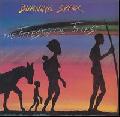 The Fittest of the Fittest - HEARTBEAT(1983): The Fittest of the Fittest - HEARTBEAT(1983):
After the rather disappointing Farover, this mellow album laid down a firm foundation for the future, ensuring that while Burning Spear's fire no longer burned as fiery as before, a bright glow would still last down through the years. The Fittest of the Fittest's title track encapsulates both the sound and vision of what was to come. The Burning Band's rhythm section lays down a succulently meaty groove, while the rest of the musicians weave in and out, layering on riffs and flourishes to create a rich tapestry of sound. Overhead, Winston Rodney chants along, a long-distance roadrunner eating up the miles and passing cultural touchstones along the way. "Repatriation" boasts an equally sublime groove, with the band almost melting into it. No longer the immediate imperative, repatriation now seems more a long-term goal, a significant sea change, moving Rodney away from his earlier militancy and toward a more visionary stance. It's a transformation that the unity-themed "Vision" further supports, and "For You" confirms. The latter is a song for the ladies, which, even after "She's Mine" broke Spear's cultural mold on Farover, comes as a surprise. Yet "Bad to Worse" makes clear that Rodney hasn't become a full-blown optimist just yet. Past injustices still rankle, or at least bubble, as they do on "2000 Years," which gurgles up from the roots, then seeps through the dancehalls. If that bubbles, "In Africa" boings, as the chanter now reinvents himself as Eek-a-Mouse and boingy boings his way across the opening of the song. Simultaneously, the Burning Band returns to Studio One and drag its '60s sound straight into the later roots age. But that's nothing compared to "Fire Man," which drags "Fire Down Below" out of the archives and into the modern age. That is actually less rootsy than the original that Spear cut for Coxsone Dodd all those years ago, although the wailing sirens in the background give it a perfect contemporary flavor. And just to further ground the album, there's "Old Boy Garvey," yet another tribute to Jamaica's most famous son. A superb album, which while not in the same class as Spear's first five releases, proves that the artist still has a good deal of simmer left.
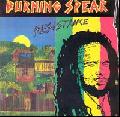 Resistance(1984): Resistance(1984):
A great pairing of Rodney vocals and horn section. A Grammy nominee, this boasts the added bonus of a wonderful non-political piece "Love to You."
People Of the World(1986):
A nice debut on a major label not known for reggae. This release also includes eclectic material and a female horn section.
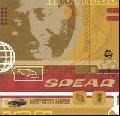 Mistress Music(1988): Mistress Music(1988):
Mistress Music is a somewhat later release from Burning Spear, a veteran of the roots reggae scene. This album has a good deal of the style that made him famous -- a blend of Rastafarian preaching with straight reggae. The vocals are occasionally drowned out to a degree by the synths, and the recording in general is somewhat dated by the overuse of synthesizers. The songs are often of a love song nature, with a spare Marcus Garvey-based love song thrown in ("Love Garvey"). The guitars could probably use a little more emphasis, and the synths a little less; nonetheless, the album is not bad overall. There are certainly other albums available in the genre (and for that matter, in Burning Spear's catalog) that could probably outdo this one in many respects, but that doesn't necessarily detract from Mistress Music. Pick it up if you're curious about the (somewhat) later work of Winston Rodney.
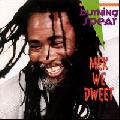 Mek We Dweet (1990): Mek We Dweet (1990):
One of the finest and best-selling reggae singers of the 1970s, Burning Spear (aka Winston Rodney) successfully entered the '90s with Mek We Dweet. Though not quite on a par with such '70s gems as Marcus Garvey and Man in the Hills, Dweet proved that Spear could still deliver a thoroughly satisfying album. In contrast to reggae singers who, in 1990, were incorporating heavy doses of dancehall, Spear wisely sticks with the type of earthy, simple reggae that earned him so devoted a following in the '70s. Cuts like "Elephant," "Garvey" (one of his many odes to Marcus Garvey), and "My Roots" aren't much different from what Spear was doing 15 years earlier and leave no doubt that he was intent on remaining true to himself.
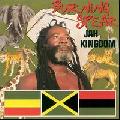 Jah Kingdom(1992): Jah Kingdom(1992):
NO INFO!:(
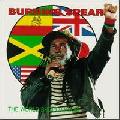 The World Should Know(1993): The World Should Know(1993):
Even though The World Should Know was released on CD, Burning Spear was still thinking in vinyl terms, and thus this album is very much a record of two distinct halves. The first five tracks are pure culture, although the music is anything but pure roots. In fact, the entire album is underpinned by dance beats, either by the programmed drums favored by the discos or the big, booming beats so popular in Jamaican dancehalls. Winston Rodney worked hard to make World sound global, determined that it would go down just as well at home as in foreign climes. A few songs are geared more to island styling, others more to the northern market, but most are a sparkling blend of both, an excellent use of beats, brass, and synths to encompass differing genres within individual songs. Rodney had learned much during his return trip to Island Records, and now put it to use back at his former label, Heartbeat. The five cultural numbers together create a mini-concept album, which moves from the global to the personal. The title track envelops economics, unity, and consciousness, while "In a Time Like Now" specifically addresses the withering effects of the free-market policies that are impoverishing Jamaica and so many other developing countries. "I Stand Strong" and "Identity" discuss Rodney's own personal philosophy, and "It's Not a Crime" covers one of his favorite topics, the importance of loving and educating youth. That latter song resurrects the old kiddie song "I'm a Little Teapot," which the singer had utilized to such devastating effect years ago on "Fire Down Below." The rest of the record is more varied, from a pair of love songs for the ladies to the bouncy celebration of music in "Mi Gi Dem (I Give Them)" and the more ambiguous "On the Inside," which can be read both as a personal relationship number and a broader cultural song, while "Peace" combines a unity theme with a devotional message. World was an exciting change of pace after the more hypnotic Jah Kingdom; bright and bubbly, lush and dance-friendly, the album was proof positive that one could bring culture to the world's dancefloors. Deservedly, it was nominated for a Grammy. [The World Should Know was re-released in 2005 with a bonus DVD.]
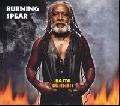 Rasta business(1995): Rasta business(1995):
"Talking, reasoning, about some constructive things"; this line from "Every Other Nation" nicely sums up Rasta Business, whose songs act as a launch pad for a series of insightful discussions. And who better than Winston Rodney to lecture and educate; it's a role the Burning Spear has always held, although he remains somewhat unsure if others respect it. "My diploma is from his Majesty, never recognized by society," he insists. Jamaica is in need of a voice, a recognized speaker, another of "Every Other Nation"'s observations. However, the island's real national voices are lost in the din of PR and spin, and even Rastafarianism has found itself marketed, a development that meets with Rodney's disapproval, forms the theme for the album's title track, and is further explored on "Legal Hustlers." Rodney may no longer be the impassioned, searing Spear of yore, and while he still scathingly condemns on occasion, it's evident his true aim is to educate and raise consciousness, a point that the anthemic "Subject in School" makes clear as the singer campaigns for lessons in Garvey-ism. The sublime "Africa" is a crash course in repatriation, while "Not Stupid" adopts his classic "Slavery Days" to current events. Like all great ambassadors and teachers, Rodney puts his views across with clarity while simultaneously reaching out to those who have yet to grasp his points. He makes all learning enjoyable, all discussions pertinent, and his insightful views continue to intrigue. As always, his band cooks merrily along behind him, but the music, strong as it is, is not the focus here, merely an auditory tool to enhance the lecture.
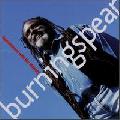 Appointment with his Majesty(1997): Appointment with his Majesty(1997):
As one of the great trance singers and stylists in the genre, Winston Rodney (aka Burning Spear) has always come up with records that are distinctive and socially conscious. This 1997 12-track effort for the Heartbeat imprint is no exception, kicking off with "The Future (Clean It Up)," and a plea for worldwide understanding of mankind's current state of affairs. A prayer to Jah to eradicate prejudice comes with the title track, a sentiment that also surfaces in "Glory Be to Jah." An odd, but nonetheless compelling tribute to Jerry Garcia and the Grateful Dead comes with the celebratory "Play Jerry." The rest of the album's themes vacillate between social consciousness-raising ("Come In Peace," "Don't Sell Out," "African Jamaican," "My Island," "Commercial Development") and the peace that comes when the music is right ("Loving You," "Reggae Physician," and the set closer, "Music"). The Spear burns on.
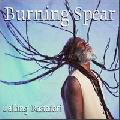 Calling Rastafari(1999): Calling Rastafari(1999):
By this time Burning Spear's sound is well established: slow, smoky roots reggae grooves embellished by horns and featuring little or no melody; in its place is Winston Rodney's hypnotic speak-singing, a relatively tuneless chant that invariably delivers messages of spiritual uplift, political resistance and social discipline. On his latest outing, Rodney does not departs at all from his usual approach, which in lesser artists might be seen as a sign of stagnation, but in his case just sounds like virtuous consistency. The program opens with "As It Is," which recycles Spear's classic "Marcus Garvey" with new (and unfortunately self-referential) lyrics. Things improve immediately with the sweet and quietly propulsive "Hallelujah" and the surprisingly tuneful "House of Reggae." "Statue of Liberty" combines a biting criticism of American immigration policy with percolating guitar, a funky horn line, and a martial rockers beat. The album ends with an extended mix of "Holy Man," a horn-heavy paean to Haile Selassie. The Burning Band is rock solid throughout. Highly recommended.
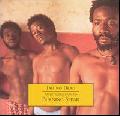 Jah no dead(2003): Jah no dead(2003):
This "Introduction to Burning Spear" actually covers a fairly narrow slice of the act's career, drawing from five mid- to late-'70s albums for Island. Some might reasonably argue that it doesn't provide a full survey, even an introductory one, of an artist who's had a much longer lifespan. On the other hand, Burning Spear's '70s Island period was pretty much indisputably the one which produced their (or his, depending upon the recording lineup) best and (to the larger international pop audience, anyway) most widely known work. Jah No Dead covers that groundbreaking period well, featuring what's probably the most famous Burning Spear song ("Slavery Days"), of course, but also including a couple of tracks from the dub version of Marcus Garvey. What strikes the listener when hearing this overview is how Burning Spear not only reflected reggae's peak of social consciousness and articulation of Rastafarianism, but combined that with music and production that was as innovative and interesting as the lyrics. The songs projected a brooding determination while managing to often avoid the clichés of many minor-keyed '70s reggae melodies. The tracks were also spiced with suitably ghostly dub effects, horns, and background vocals that did not, as Lee Perry's productions sometimes did, call attention to themselves primarily by virtue of their eccentricity. It all enhanced Burning Spear's message, one which comes through powerfully on this fine compilation (which, incidentally, includes the extended 12'' mixes of "Civilized Reggae" and "Social Living").
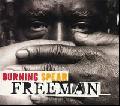 Freeman(2003): Freeman(2003):
Perhaps the most amazing thing about Burning Spear is how little his approach has changed after nearly 40 years as a recording artist. His themes and concerns -- freedom, self-determination, equal rights -- have remained constant, and he sticks pretty close to his original musical template of slow to mid-tempo roots rhythms with plenty of horns and percussion layered into the mix for added punch. As new styles have swept through the Jamaican music business, Spear has stayed his ground, sure in what he wants to say and how he wants to say it. So there are no surprises on Free Man, the first release on Burning Spear's new record label, Burning Music. The songs stick to righteous themes, the backing tracks are solid but not flashy, fleshed out with his trademark sonorous horn charts, and while his voice occasionally drifts off-pitch, Spear delivers what he has always delivered: Solid, workingman's roots music full of anger, hope, redemption and earthy wisdom. Working with veteran Jamaican session players like percussionist Uziah "Sticky" Thompson and drummer Leroy "Horsemouth" Wallace, Spear still radiates the kind of tempered joy at life and music that made his early work from the mid- to late-'70s (Marcus Garvey, Man in the Hills, Dry & Heavy) such classics. Among the highlights here are the gritty "Rock and Roll," the perennial Marcus Garvey homage, "Rise Up," and Spear's call to politicians to rethink things, "Changes." While Free Man doesn't quite equal those classic early albums, it is cut from the same quilt, and it won't disappoint his many fans.
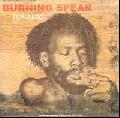 Travelling (2004): Travelling (2004):
NO INFO!:(
Our Music - DUALDISC (2005):
NO INFO!:( |

